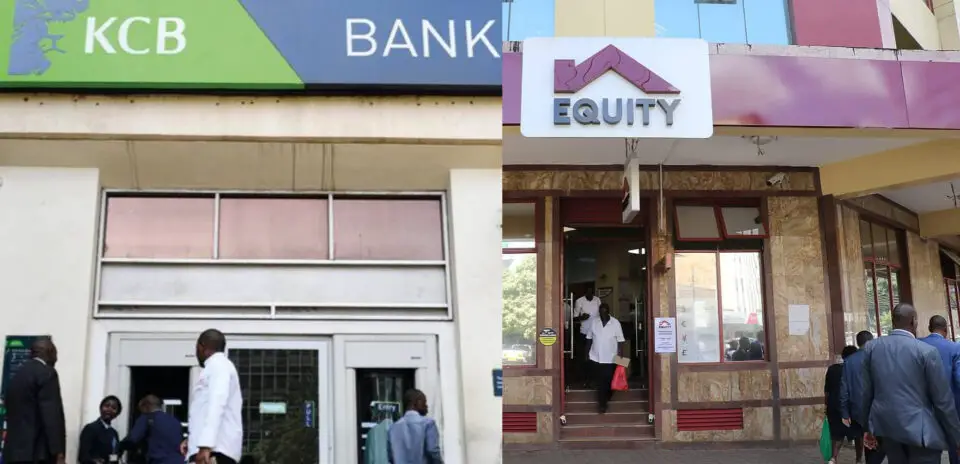READ ALSO: On Banking
Between KCB and Equity Which Is Better?
Whether KCB or Equity Bank is “better” depends on what you’re looking for—each bank has different strengths.
Here’s a comparison across key areas to help you decide which might suit your needs better:
Table of Contents
KCB vs Equity Bank 1. Size and Stability
- KCB is slightly larger in terms of total assets and is considered more established, with deeper historical roots.
- Equity has grown rapidly, especially over the last two decades, and now rivals or surpasses KCB in several areas, including customer base.
Verdict:
KCB is seen as more “traditional” and stable. Equity is aggressive and growth-focused.
2. Innovation and Technology
- Equity Bank leads in digital banking, mobile platforms (EazzyBanking App, Equitel SIM), and agency banking. It has pioneered access for low-income earners and rural communities.
- KCB is also strong digitally (KCB M-Pesa), but Equity generally moves faster with tech adoption.
Verdict:
Equity is more innovative and accessible via mobile/agents.
3. Customer Service
- Equity Bank often ranks higher for accessibility due to its massive agent network, but some users complain about long queues at branches and customer care delays.
- KCB is considered more polished in corporate customer service but may be slower for lower-tier customers.
Verdict:
Equity is better for fast, everyday services. KCB is often better for high-value or corporate customers.
4. SME and Personal Loans
- Equity Bank is well-known for friendly terms for small business loans and has been more inclusive of first-time borrowers.
- KCB also offers solid lending but is more conservative in credit risk.
Verdict:
Equity tends to be more accommodating for SMEs and hustlers.
5. ATM and Branch Network
- Both have extensive branch and ATM networks, though Equity edges ahead in rural outreach through agents.
Verdict:
Equity wins for reach, especially in underserved areas.
6. Corporate and Institutional Banking
- KCB has an edge in this space. It handles many government and large enterprise accounts and has more corporate experience.
Verdict:
KCB is stronger for large business or government-related banking.
Overall Summary
| Feature | Winner |
|---|---|
| Stability | KCB |
| Innovation & Mobile Banking | Equity |
| Customer Service (mass) | Equity |
| SME Focus | Equity |
| Corporate Services | KCB |
| Rural Access | Equity |
So, Between KCB and Equity Which Is Better?
- Choose Equity if you’re an individual or small business looking for convenience, mobile banking, and wide access.
- Choose KCB if you prioritize stability, have corporate banking needs, or prefer a traditional bank structure.
KCB vs Equity Bank: A Comparison

KCB Bank and Equity Bank are two of the largest and most influential financial institutions in East Africa.
Both banks have a strong presence in the region, offering a wide range of banking services, from personal and business banking to corporate and investment solutions.
While they share similarities in their market coverage and financial services, they have distinct business models, customer bases, and strategies that set them apart.
KCB vs Equity Bank: History and Growth
KCB (Kenya Commercial Bank) has a long history, dating back to 1896 when it was established as the National Bank of India.
Over the years, it evolved into KCB Group, expanding its presence beyond Kenya to Uganda, Tanzania, Rwanda, Burundi, South Sudan, and the Democratic Republic of Congo (DRC).
It has consistently ranked as one of the largest banks in terms of assets and market capitalization.
Photo credit: Bizna